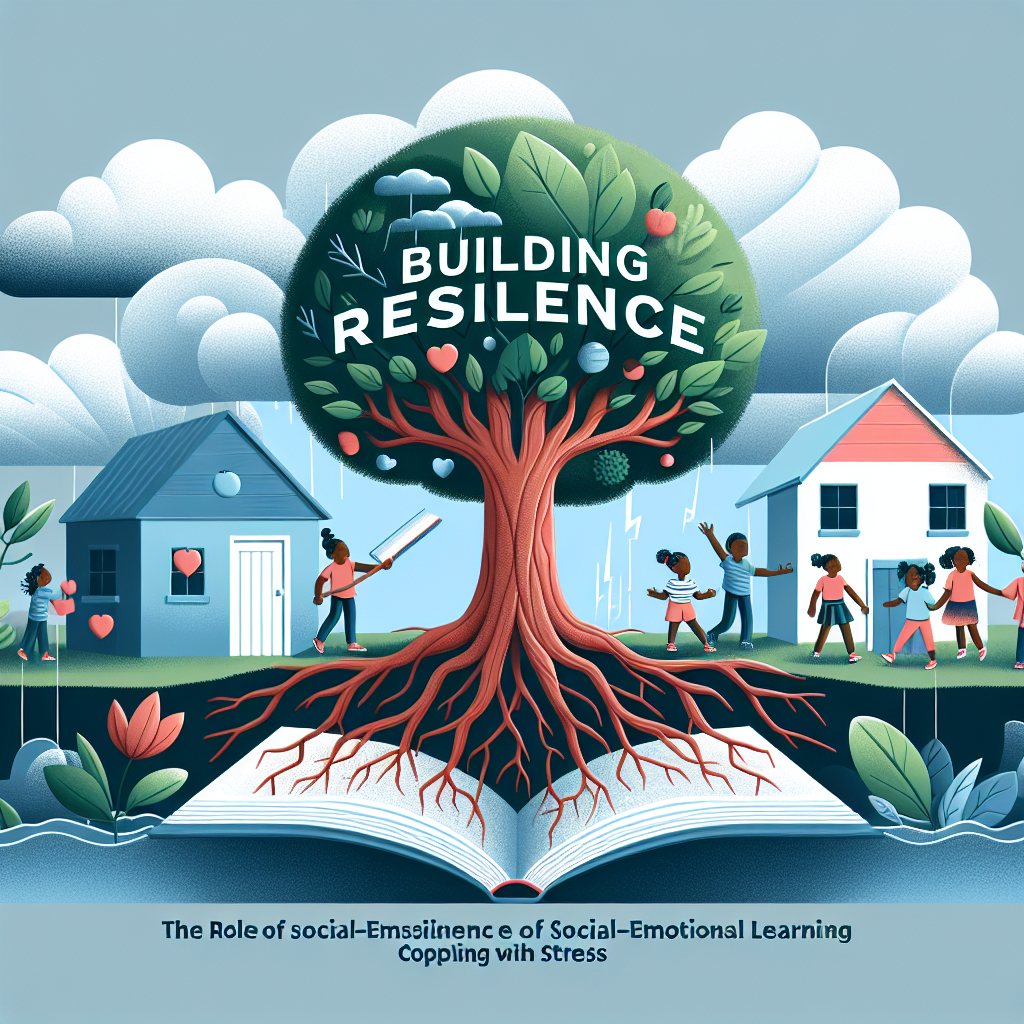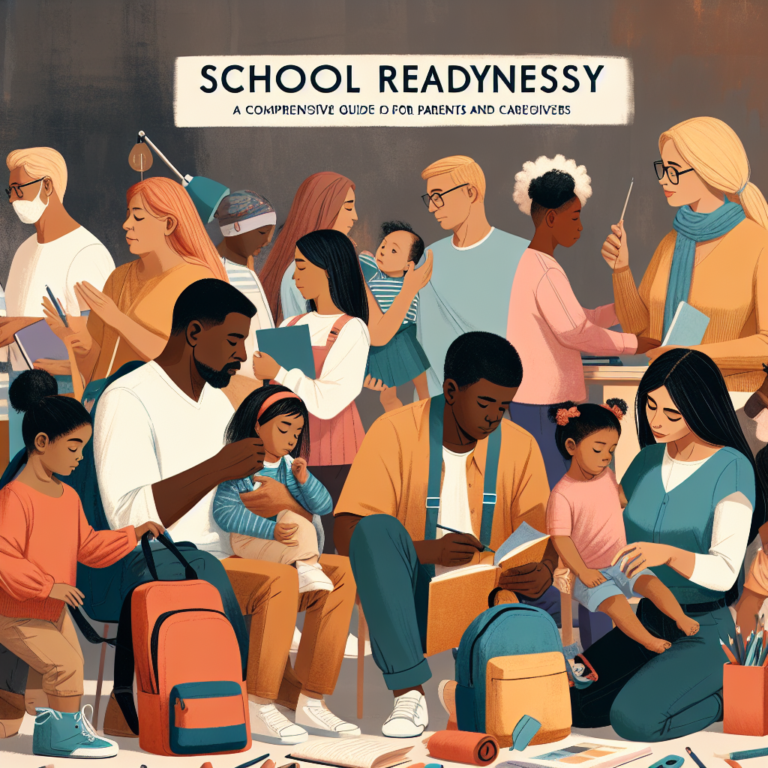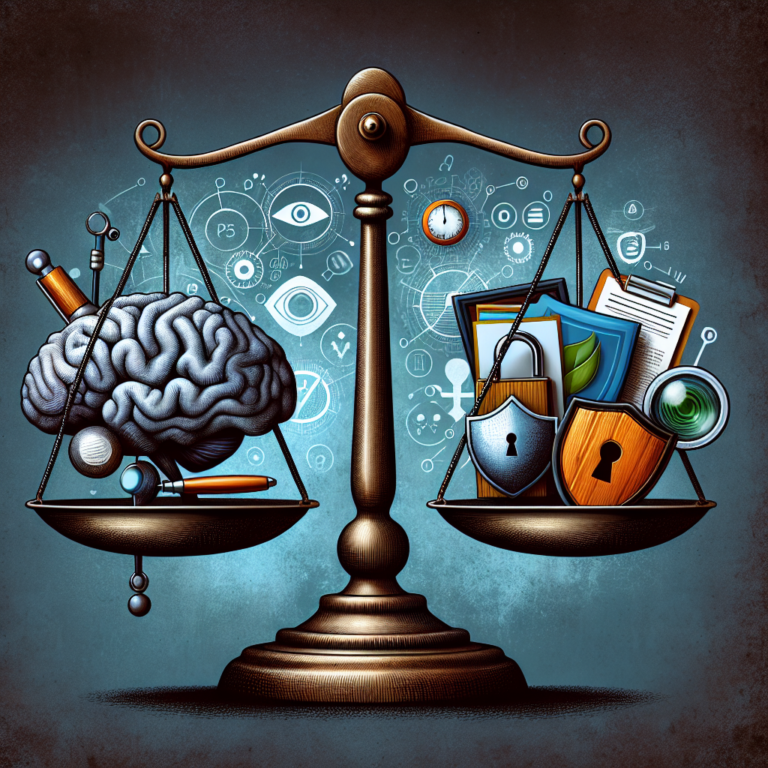
Introduction
In today’s fast-paced, ever-changing world, stress has become a common hurdle for people of all ages. The ability to bounce back from adversity isn’t just about mental strength; it encompasses a blend of emotional awareness and social competence. This is where Building Resilience: The Role of Social-Emotional Learning in Coping with Stress comes into play. By developing social-emotional skills, individuals can cultivate resilience, enabling them to navigate life’s challenges more effectively. In this article, we will delve into the importance of social-emotional learning (SEL) in building resilience and its profound impact on our ability to cope with stress.
Understanding Resilience
What is Resilience?
Resilience can be defined as the capacity to recover quickly from difficulties. It’s not merely about enduring hardship, but rather about adapting and growing in response to adversity. Resilience is closely linked to emotional intelligence, including the ability to recognize one’s own feelings and those of others.
The Importance of Resilience in Daily Life
Life is a series of unpredictable events, from personal setbacks to broader societal issues such as economic downturns. Resilience helps individuals to maneuver through these stresses and emerge stronger. For example:
- Academic Challenges: Students with high resilience typically perform better under pressure, as they are better equipped to manage stress related to exams and assignments.
- Workplace Dynamics: Employees who demonstrate resilience are more likely to lead teams through challenges, fostering a culture of support and problem-solving.
The Concept of Social-Emotional Learning (SEL)
Defining Social-Emotional Learning
Social-emotional learning refers to the process through which individuals—especially children and adolescents—learn to understand and manage emotions, set positive goals, show empathy for others, establish positive relationships, and make responsible decisions.
Key Components of SEL
SEL is built around five core competencies:
- Self-awareness: Understanding one’s emotions and their impact.
- Self-management: Regulating one’s emotions in healthy ways.
- Social awareness: Empathizing with others and recognizing social dynamics.
- Relationship skills: Building and maintaining healthy relationships.
- Responsible decision-making: Making ethical choices based on the well-being of oneself and others.
Building Resilience Through SEL
The Connection Between SEL and Resilience
Enhancing social-emotional skills is crucial to building resilience. When individuals are equipped with self-awareness and relationship management abilities, they can better cope with stress. Here’s how each component of SEL contributes to resilience:
Self-Awareness and Resilience
Understanding one’s emotions allows individuals to identify stress triggers and respond appropriately. A student facing academic pressure who recognizes feelings of anxiety can take proactive steps, such as seeking help or practicing relaxation techniques.
Self-Management Techniques
Effective self-management involves emotional regulation through stress-relief techniques such as mindfulness, deep breathing, or constructive feedback loops. By employing these strategies, individuals can diminish the negative impacts of stress.
Developing Social Awareness
Empathy cultivates strong connections with others. People who can recognize feelings in themselves and those around them often build supportive networks, allowing them to seek guidance during challenging times.
Mastering Relationship Skills
Strong relationships act as a buffer against stress. For instance, a support group can provide encouragement and wisdom, helping individuals to navigate life’s trials.
Making Responsible Decisions
An understanding of ethical decision-making leads to choices that enhance well-being and reduce stress. When faced with dilemmas, individuals who consider the broader implications of their actions are better equipped to handle stressors.
Case Studies Highlighting SEL in Action
Case Study 1: SEL in Schools
In an elementary school in Chicago, a program integrating SEL into the curriculum resulted in improved student behavior and academic performance. Over two years, the school observed a 30% decrease in disciplinary incidents. The students developed emotional awareness and learned coping mechanisms, contributing significantly to their resilience.
Analysis: This demonstrates the practical application of SEL in schools, showcasing its role in improving not just behavior but also academic success, which in turn lessens stress levels among students and educators alike.
Case Study 2: Workplace Resilience
At a tech company, management implemented SEL workshops to help employees handle workplace stress better. Employees reported a 40% increase in feelings of resilience and collaboration after six months. The workshops emphasized empathy, listening skills, and constructive feedback.
Analysis: This case emphasizes that SEL in professional environments can foster resilience, leading to higher productivity and a healthier workplace culture.
Case Study 3: Community Programs
A community center in Los Angeles rolled out an SEL initiative aimed at youth to combat high rates of anxiety and depression. The program provided tools for emotional regulation and peer support, resulting in reported improvements in mental health among participants.
Analysis: This illustrates how community-based SEL programs can enhance resilience, equipping young people with the necessary skills to face personal and societal challenges.
Key Strategies for Building Resilience
Incorporating SEL in Daily Life
Mindfulness Practices: Engaging in mindfulness or meditation can help improve self-awareness and emotional regulation.
Emotional Check-Ins: Regularly taking time to assess one’s emotional state can foster awareness and self-management.
Building Support Networks: Cultivating strong relationships provides a safety net during stressful times.
- Decision-Making Workshops: Participating in workshops that focus on ethical decision-making can enhance responsible choices.
Implementing SEL in Educational Systems
Curriculum Integration: Schools can integrate SEL into existing subjects, such as literature or social studies, to engage students in discussions about emotions and relationships.
- Parent Workshops: Empowering parents with SEL tools can create a consistent support system for students.
Enhancing Workplace Environments
Regular Training: Incorporating SEL training into onboarding processes can prepare employees for workplace challenges.
- Team-Building Activities: Facilitating activities that promote interaction and trust-building can enhance relationship skills and resilience.
Conclusion
Building resilience is becoming increasingly essential in a world filled with stressors. The Building Resilience: The Role of Social-Emotional Learning in Coping with Stress encapsulates the strategies and skills necessary for navigating life’s challenges. By fostering self-awareness, social awareness, relationship skills, self-management, and responsible decision-making, we can equip ourselves and future generations to thrive amidst adversity.
As you move forward, consider integrating SEL practices into your daily life, whether through mindfulness, developing relationships, or improving decision-making. Remember, resilience isn’t just an innate trait; it’s a skill that can be nurtured and developed.
FAQs
1. What are the key benefits of social-emotional learning?
Social-emotional learning enhances emotional intelligence, improves academic performance, fosters healthier relationships, and helps individuals cope with stress.
2. Can adults benefit from SEL as much as children?
Absolutely! Adults can enhance their emotional intelligence and coping skills through SEL, leading to improved relationships and workplace dynamics.
3. How can I practice SEL at home?
You can practice SEL at home by having open discussions about feelings, practicing gratitude, and modeling effective communication skills.
4. What role do educators play in promoting SEL?
Educators can create a positive classroom environment, integrate SEL into curriculum, and provide support for students facing emotional challenges.
5. Are there specific SEL programs I can recommend for schools?
Yes! Programs like Second Step, Caring School Community, and MindUP are designed to cultivate SEL skills within school environments.
By actively engaging with social emotional learning, we can all build resilience and better cope with the stresses of everyday life.















